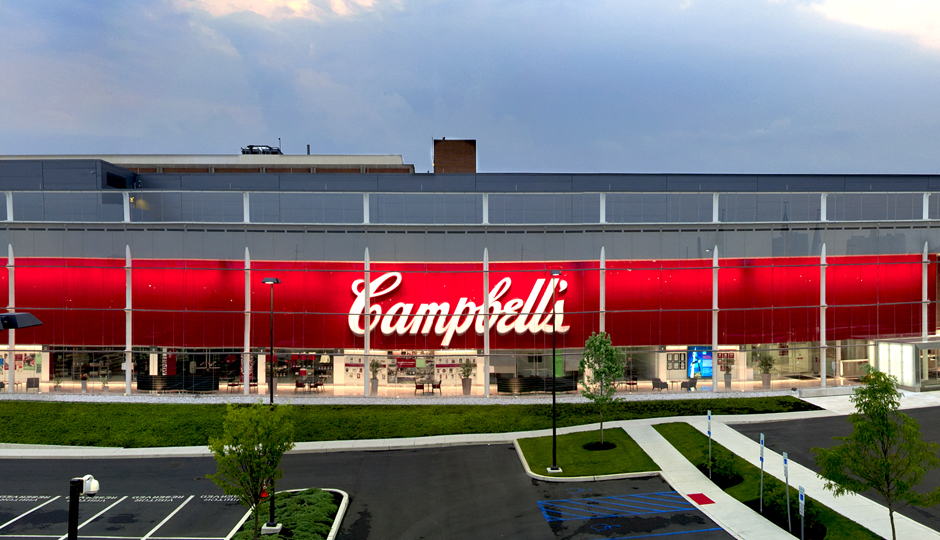Why Campbell Soup is Betting $125 Million on Startups

Campbell Soup Co. headquarters in Camden, N.J.
How does a 147-year-old food company reinvent itself in the face of a seismic shift in the way people eat? Partner with young, innovative startup companies disrupting the space.
For the past few years, Campbell Soup has been on a mission to become a healthier food company as people are looking for healthier, less processed food items. In 2012 it acquired Bolthouse Farms (makers of juices, bagged carrots and salad dressing), and in 2013 it bought Plum Organics (organic baby food and kid snacks). In 2015 it acquired salsa, hummus and dip maker Garden Fresh Gourmet for $231 million.
But this week the company added a new tactic to its arsenal — a $125 million venture capital fund.
Called Acre Venture Partners, the new fund represents a “strategic and methodical approach” to an industry that’s “being transformed by the fusion of food, well-being and technology,” Morrison said during a speech at the Consumer Analyst Group of New York conference where she announced the fund.
“We believe that defining the future of real food requires new approaches, new business models, smart external developments and an ecosystem of innovative partners,” said Morrison. Campbell’s will be the soul, limited partner in the fund.
Cambell’s hasn’t really been a big player in the venture capital space but did invest in a Silicon Valley startup called Juicero. But now armed with $125 million, Campbell’s is jumping in head-first.
“There’s a massive influx of venture capital aimed at disrupting the food ecosystem, flowing from traditional venture capital firms and funds managed by large food companies,” said Morrison. “Since 2010, approximately 400 food startups received approximately $6 billion in funding.”
So will Campbell’s just invest or do some acquiring as well?
“We’re not going to buy every company we invest in,” Morrison told the Wall Street Journal. She also gave some more details about why Campbell’s launched the venture fund: “Ms. Morrison said e-commerce and the increased availability of food manufacturing lines have lowered the barrier of entry for startups,” the WSJ reported. “These smaller companies have largely responded faster to consumers’ demand for transparency as to what is in the food, and other trends like simpler and fresher ingredients.”
Another reason Campbell’s is jumping into the VC space is to keep up with competitors. Ad Age explains: “Other consumer packaged-goods marketers have made similar moves in funding and looking for emerging companies, from Unilever‘s Project Foundry to Procter & Gamble‘s Connect & Develop. 301 INC is a unit within General Mills that works on partnerships with emerging food brands. General Mills has already acquired jerky maker Epic. Mobile Futures is the name of Mondelez International‘s effort that began in 2012 to accelerate mobile innovations and incubate new ventures. It was followed last year by Shopper Futures, which is working on shaking up the consumer retail experience.”
If a startup is poised to disrupt your industry, why fight them when you can join them? SiliconBeat identified a few examples: “Think General Motors investing in Lyft, and UPS investing in delivery startup Roadie. The money often goes to the corporations’ direct competitors, with the goal that the investments will be an opportunity to forge partnerships and gain access to new technology.”
Like what you’re reading? Stay in touch with BizPhilly — here’s how:
- Follow BizPhilly on Twitter and follow editor Jared Shelly here.
- Get the BizPhilly Newsletter
- Like BizPhilly on Facebook
- Check out the BizPhilly homepage


